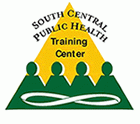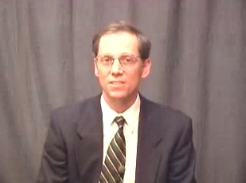
Community Health and Disease
Course Description:
The course will describe the biological processes underlying the most important causes of morbidity and mortality in the U.S. and connect these with community disease prevention/health promotion strategies.
For each health problem, the course will review:
- the physiology and pathophysiology of the organ systems involved
- individual- and population-level causes and behavioral determinants of disease
- the patterns of disease occurrence in populations
- individual and community-level strategies for prevention
Target Audience
Academic Faculty/Staff, Federal Government Employees, State Government Employees, Local Government Employees, Non-Government Employees and Students
Learning Objectives
- Describe the leading causes of potential life lost in the U.S.
- Describe the biologic mechanisms of diseases for these leading causes
- Describe individual-level behavioral risks for these diseases
- Identify population-level and environmental risks for these diseases
- Describe prevention strategies at the individual and community level, including policy and environmental strategies
Instructor:

Thomas Farley, MD, MPH
My background is in pediatrics, epidemiology, and control of infectious diseases. I have worked on a child health program in Haiti, in infectious disease epidemiology for the Centers for Disease Control and Prevention, and in prevention of vaccine-preventable diseases, tuberculosis, STDs, and HIV at the Louisiana Office of Public Health. In recent years I have evaluated interventions to control bacterial STDs and HIV.
My work in prevention of STDs/HIV led me toward population-based interventions to address the underlying causes of high-risk sexual behavior. Because these underlying causes influence other diseases and injuries as well, I moved from infectious disease control at the health department to the Department of Community Health Sciences at Tulane. I am interested in developing, implementing, and evaluating population-based interventions for a range of health problems, particularly interventions that act on our social and physical environment. As Chair of the Community Health Sciences Department, I also plan to build on the Department's strengths in teaching, research, and community service. I would like our Department to be known for training effective public health leaders, conducting research that is innovative and important to public health, and improving the health of our local communities.
Education:
BA Mathematics Haverford College 1977
MD Tulane University 1981
Epidemic Intelligence Service, Centers for Disease Control and Prevention, 1989
MPH Tulane University 1991
Research Interests:
Prevention of STDs/HIV
Social and physical environmental determinants of health
Available Credit
- 5.00 Participation/CETulane Professional and Continuing Education (PaCE) awards 5.00 hour(s) of credit for completing Community Health and Disease
Price
Required Hardware/software
System Settings
This course is designed to work most effectively if your computer and internet connection meet certain minimal requirements. This course can be accessed using a Windows 10 PC or a Mac with High Sierra1, Mojave, or Catalina. Pop-up blockers should be disabled when viewing the course. Internet Explorer 11 (for Windows 10), or the current version of Google Chrome, Mozilla Firefox, or Apple Safari (for Windows 10 and or Mac) is required. Many of our courses require Java and JavaScript enabled.
Links to External Websites
Links to websites outside this course will open in a new window or tab. Some browsers may minimize the course window. If this occurs, maximize the course window to return to the course.
Adobe Acrobat Reader (for desktops and laptops)
Adobe Acrobat Reader is required to access some documents in this course. If you need to download a free copy of Acrobat Reader, click here.
Internet Connection Speed
A minimum download speed of 1.5 Mbps is recommended for an optimal experience, which is commonly the speed associated with a basic DSL or a cellular/satellite connection. A faster connection, such as cable or fiber service, with further enhance your online experience. A Wi-Fi connection is generally acceptable, but it is dependent upon one of the two services mentioned above. You can check your internet connection speed at http://www.speedtest.net/.

 Facebook
Facebook X
X LinkedIn
LinkedIn Forward
Forward